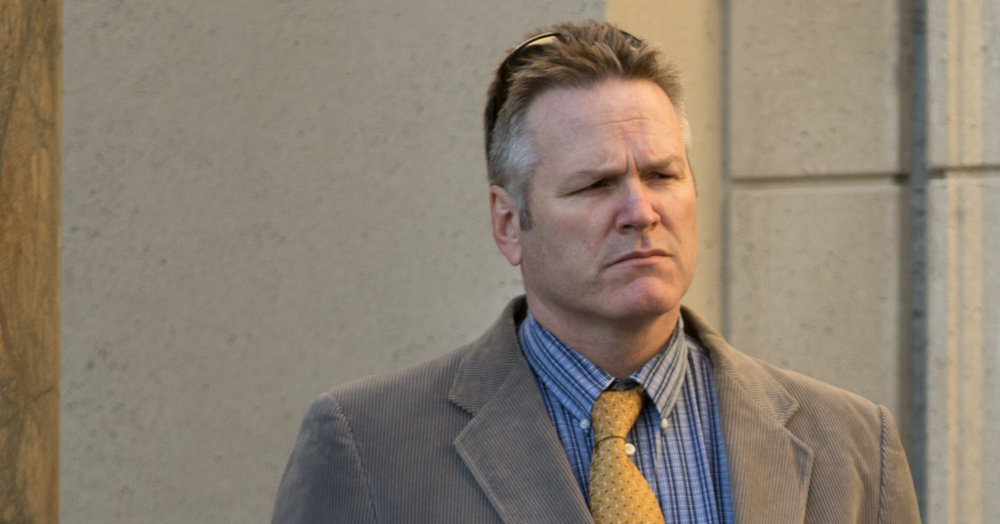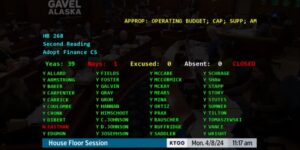
When the news hit that my senator, Mike Dunleavy, was resigning from the legislature to run for governor, I immediately began getting phone calls asking if I would consider allowing my name to go forward to finish the final year of his 4-year term.
While it would be a privilege to represent the Mat-Su in the senate, I chose not to allow my name to go forward. More than enough people expressed interest in the position, and I was confident that Mat-Su Republicans would be able to send three qualified names to the governor for appointment, as both Republicans and Democrats have been doing for decades.
I remember six years ago when fellow firefighter, Rep. Carl Gatto, represented a portion of Dunleavy’s district. After serving as my legislator for nearly ten years, Rep. Gatto succumbed to cancer during the legislative session in 2012.
Local Republicans interviewed candidates and selected three names, mine among them, to go to the governor. Each of the candidates were interviewed by the governor, and Governor Parnell selected Shelley Hughes from that list. While I was disappointed at not being chosen, the process was both open and fair and, most importantly, it showed respect for the people who had succeeded in choosing their legislator in the last election; Mat-Su Republicans.
While Alaska’s Constitution assigns the governor a role to play in that process, the governor performs that function on behalf of the people. That same constitution declares “All government originates with the people, [and] is founded upon their will only”. Certainly the governor’s role in replacing legislators who have died in office or resigned is no exception.
I expected that Governor Walker, as every governor before him, would honor the will of the people. But I was wrong. Two weeks after making the decision not to let my name be put forward, Governor Walker did something that no Alaska governor had ever done: He ignored the three candidates sent to him by the Democratic Party to replace Rep. Dean Westlake, and recruited his own candidate; someone who had never been a Democrat.
To pressure legislators into accepting his choice, Walker waited until three hours before the 30 day statutory deadline to announce it, knowing that every day he delayed was a day that the people of House District 40 would be without representation in the state house, and the fragile Democrat majority would be hamstrung.
While the governor’s choice in replacing Rep. Dean Westlake last month is certainly an endorsement of the person he selected, that endorsement is largely overshadowed by what it says about the governor’s relationship with the people. In two words: Not good.
By choosing someone who had never been a Democrat to replace a Democrat legislator, Walker’s action was a breach of the public trust, no less so than his decision to unilaterally decide his own amount for the PFD while ignoring the fact that state law already spells out exactly how the amount of the PFD is to be calculated.
Similarly, current state law (Alaska Statute 15.40.330) requires that the governor appoint an individual who is of the same political party as the legislator being replaced. After rejecting the three individuals put forward by local Democrats, Walker selected his own candidate and then asked that individual to change his voter registration to Democrat. Such gimmicks may be expected of a lawyer like Walker, but they erode the trust placed in that office by the people.
Lawyers often view our constitution and our laws with an eye for technicalities, reasoning that if a judge doesn’t strike it down, it must be ok. But our constitution is much more than a legal contract. It is a means by which the will of the people is to be expressed over time. It exists to protect their will and to protect their rights. It exists because the people have placed their trust in certain offices and institutions, to perform their duties and to honor that trust.
Constitutionally, there is nothing to stop President Trump from appointing a new supreme court justice tomorrow. The U.S. Constitution places no limit on the number of justices the president can appoint. Legally, he would be entirely within his rights as president to make such an appointment. And yet, were he to do so, each of us, Republicans and Democrats alike, would immediately recognize such an action as a violation of the trust we have placed in the office of president. No judge could rise to stop him, but we would each feel the violation.*
Governor Walker’s action in replacing Rep. Westlake and now Sen. Dunleavy is no different. It is a violation of trust. Certainly every previous governor has considered the value of being able to choose an individual who will support their agenda in the legislature. And yet, they have continued to honor that process, or attempted to restore that process when it has started to go astray. Not so with this governor.
The individual selected to replace Sen. Dunleavy will be chosen by the people in an election later this year. If the governor does not let the people participate in selecting Dunleavy’s replacement today, I fear that any individual he chooses will be placed in a profound disadvantage come November.
It will no longer be about the credentials and good qualities of that person. It will be about restoring a relationship between the governor and the people that has become dysfunctional.
Rep. David Eastman has served in the Alaska State House representing the Mat-Su since 2017; He ran on a platform of fighting for genuine conservative reform, fiscally and socially, and remains committed to delivering on that promise.
*As was pointed out to me by an astute reader, were the president interested in having another justice or two serve on the Supreme Court, the new appointees could be welcomed and confirmed on the Court with the very same number of votes received by the president’s most recent appointee to the Supreme Court, Justice Neil Gorsuch. The president would not need to pass or sign a new law, as the number of justices could be permanently (or temporarily) changed at any time with a simple majority vote of the house and senate.




